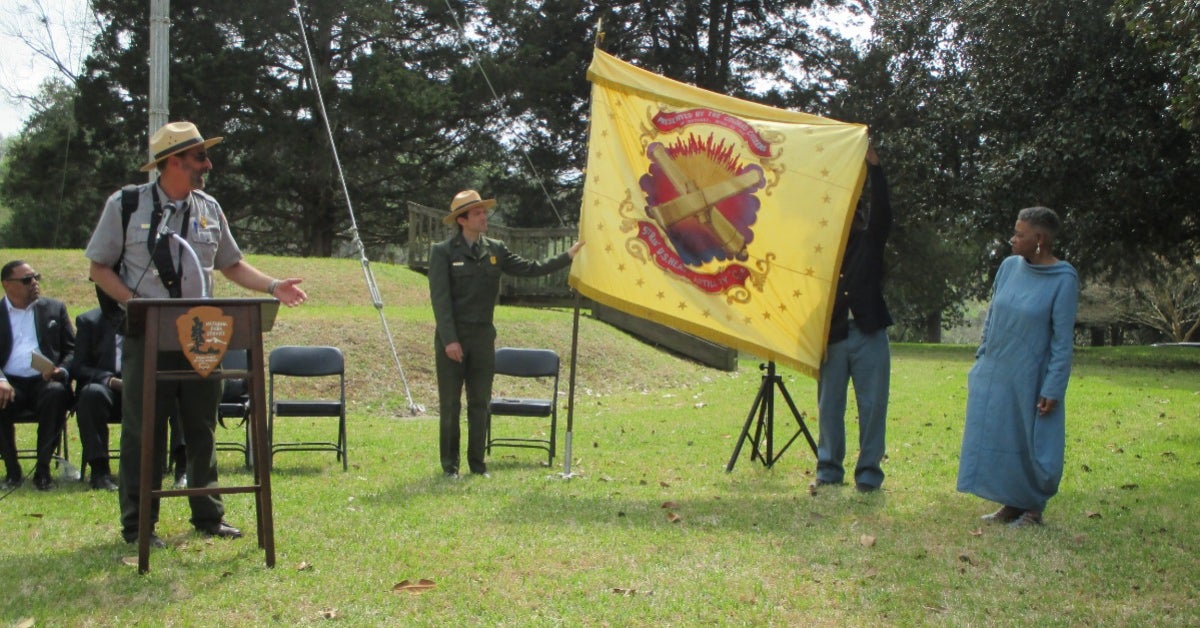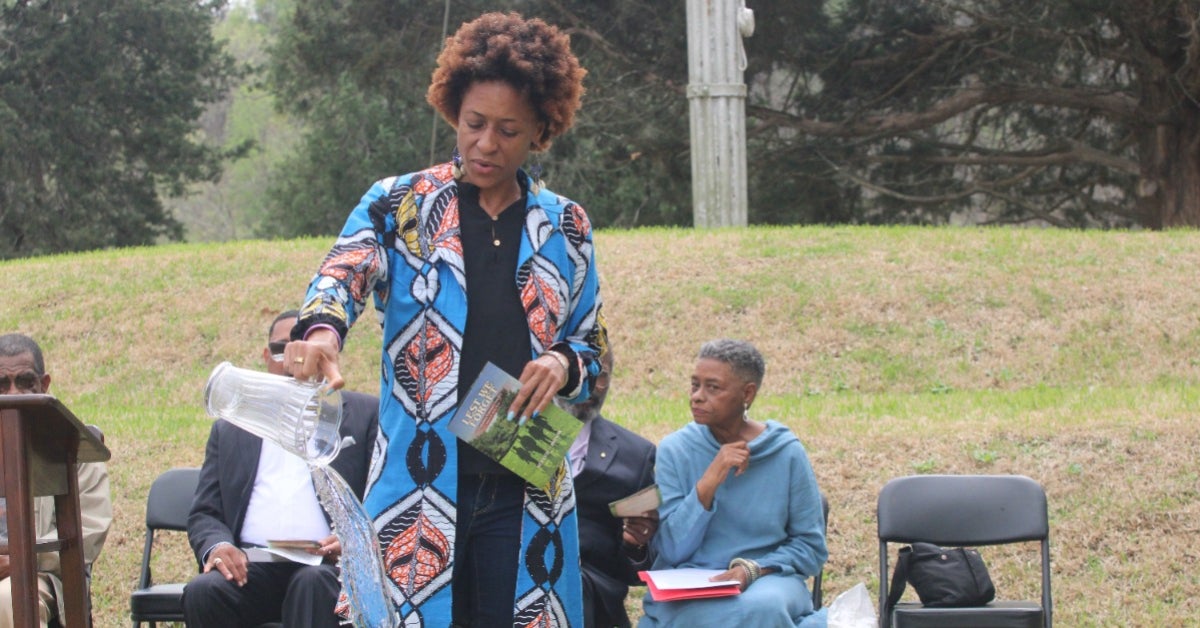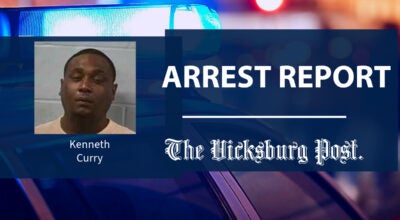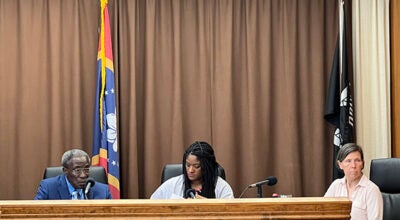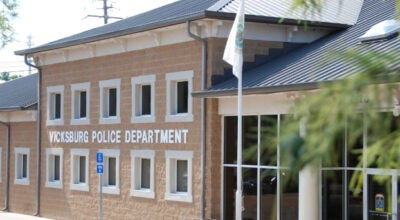Vicksburg National Military Park program honors legacy of U.S. Colored Troops
Published 4:24 pm Monday, March 13, 2023
They came in the name of one man and honored thousands.
The family of William “Bill” Sims, who served in the U.S. Colored Troops from 1863-1865, gathered at the National Cemetery in the Vicksburg National Military Park with friends and Warren County residents to honor his legacy and that of the more than 6,000 U.S. Colored troops whose bodies lie in two sections of the cemetery.
Born in Mississippi in 1839, Sims was part of a large group of African Americans who joined the Union Army and later served garrison duty during the occupation of what was called the “Vicksburg District” from 1863-1867. According to information from the Military Park, 46 percent of all African American troops came from the Mississippi Valley.
Drawing on the program’s theme, “Lest We Forget,” former Mayor Robert Walker told the group those words were relevant “as we assemble here to honor members of the United States Colored Troops that were officially called into existence with the establishment of the Bureau of the United States Colored Troops on May 22, 1863, by general order 143 that was issued by the United States War Department.”
At the time, Walker said, the prevailing view was that Blacks should not be in possession of a stick or knife that could be used as an offensive weapon. Other people were convinced that Blacks were not suitable for warfare and would not fight.
“However, the Bureau of the United States Colored Troops was established anyway and more than 189,000 Blacks were mustered into the United States Army. At least 37,000 were killed in combat during the Civil War,” he said.
He discussed the Union victory at Milliken’s Bend, north of Vicksburg, where colored troops held off an attack by Confederate soldiers, “Largely in hand to hand combat through the use of the butts and bayonets on rifles that were a poor quality that they had not been properly trained to use.
“That led to the defeat of Vicksburg, which was a major turning point in the Civil War and the Union victory,” Walker said. “This victory proved their bravery, the ability and their willingness to fight and it contributed greatly to the 13th, 14th and 15th amendments to the United States Constitution, end of slavery and the legal freedom of the black race in America.
“It is important to note here that these black men dressed in army blue were the original black freedom fighters who won a battle through pure grit, determination and the desire to be free,” he said, adding others have continued the legacy of the USCT’s battle for freedom.
“They continue the legacy of the tradition and continue to defend democracy at home and abroad. At home, they joined with the NAACP and other organizations to continue the fight for freedom and equality at home,” Walker said.
“As we disperse from this place, giving honor and due respect to those who came before us who sacrificed for our sake our heritage is unquestioned and our legacy is crystal clear. Our charge is fool-proof and the tailwinds are definitely at our back.”
Walker’s call to honor and remember the colored troops was highlighted earlier with a libation ceremony conducted by June Hardwick, in which water was poured to remember those who have died.
The ceremony, she said, “Helps to not only connect us with our maker; there’s only one God who created us all. It also connects us with Mama Earth. It connects us with the air, it connects us with the sun, all of the celestial heavenly bodies that comprise the entire universe and it helps us to connect with our ancestors upon whose backs and shoulders that all of us stand.
“We are the answers to our ancestors’ prayers; we are their wildest dreams for our ancestors who were enslaved. We descend from the formerly enslaved. They prayed for us. They had never laid eyes on any of us, but they prayed for us and yes, we are the answers to their prayers.”
Mayor George Flaggs Jr. said as the city prepares for its bicentennial in 2025 people need to remember how far the city has come in that time, asking, “How can we celebrate without recognizing the United States Colored Troops and how they fought?”
After challenging the group assembled for the program to tell the story of the colored troops, Flaggs said, “We would not be gathered here like this today had they not made the sacrifice.”


